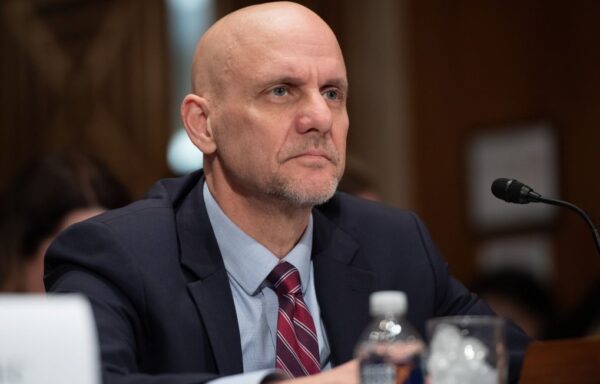
In a virtual keynote address Monday at the HLTH conference, the head of the U.S. Food and Drug Administration renewed his vow that decisions about Covid-19 vaccines will be based solely on the scientific data.
Concerns have been growing in recent months that the Trump administration would brush aside scientific expertise in its push for a vaccine ahead of the election on Nov. 3.
“What I can promise the American people is that we will use the science and data and no other information to either authorize or approve a vaccine,” FDA commissioner Dr. Stephen Hahn said in an interview-style keynote session with Anna Levchuk, healthcare industry head at S&P Global. “We will not authorize or approve a vaccine that we wouldn’t want our own family to get.”
Hahn also said the agency would require the ongoing collection of data to assess its safety and effectiveness of any approved or authorized vaccines.
“That’s going to be really important,” he said.
The promises come amid continuing concern over the potential for political influence in the vaccine-approval process. The Democratic candidate for vice president, Sen. Kamala Harris, addressed the issue last week, for example, during a debate with incumbent Vice President Mike Pence. She said she would trust a vaccine’s safety if it were backed by scientists rather than take President Donald Trump’s word for it.
At the beginning of the HLTH session, Hahn all but ruled out the possibility of a vaccine by election day, which Levchuk said would have been “nothing short of a miracle of biblical proportions.”
Instead of focusing on a vaccine timeline, Levchuk steered the conversation toward technical and regulatory concerns, as well as lessons learned by the FDA during the pandemic.
Hahn said the agency in May began reviewing its response to Covid-19 to gauge what worked and what did not – and to be prepared in case of a future pandemic. For example, he said, the agency is examining how it can incorporate the latest data in its emergency-use authorization process.
“We realize it’s not easy and quick to perform randomized clinical trials to generate the evidence to then develop medical products,” he said. “So, when we make decisions and when we’re looking at medical products, can we use real-world evidence from electronic medical records, from laboratories, et cetera, to help inform potential decisions that FDA could make in an emergency situation?”
The agency also is looking at the pandemic’s impact on clinical trials and how they might be adapted in the future, Hahn said. He cited the benefits of platform trials, which can incorporate a range of therapies, making them more efficient.
“We can use a variety of different approaches to make a decision very early about the effectiveness or not or safety or not of a product, and then move on to something else or continue the development,” he said.
On the regulatory front, Hahn spoke about the agency’s need for expertise in regulating digital medical products.
“We’ve made a number of terrific personnel hires to help us in this effort and that will be a high priority for us moving forward because we do need that expertise,” Hahn said.
He declined to discuss what, if any, regulatory changes are under consideration in response to the growth in digital health products. But, he said: “What I can tell you is that we know that this is a rapid, evolving and complex environment, and we are actively evaluating where our regulations are and I can tell you from a broad perspective, we do need to constantly update our regulatory framework so we can adapt to those changes.”
Photo by Saul Loebb/AFP via Getty Images






